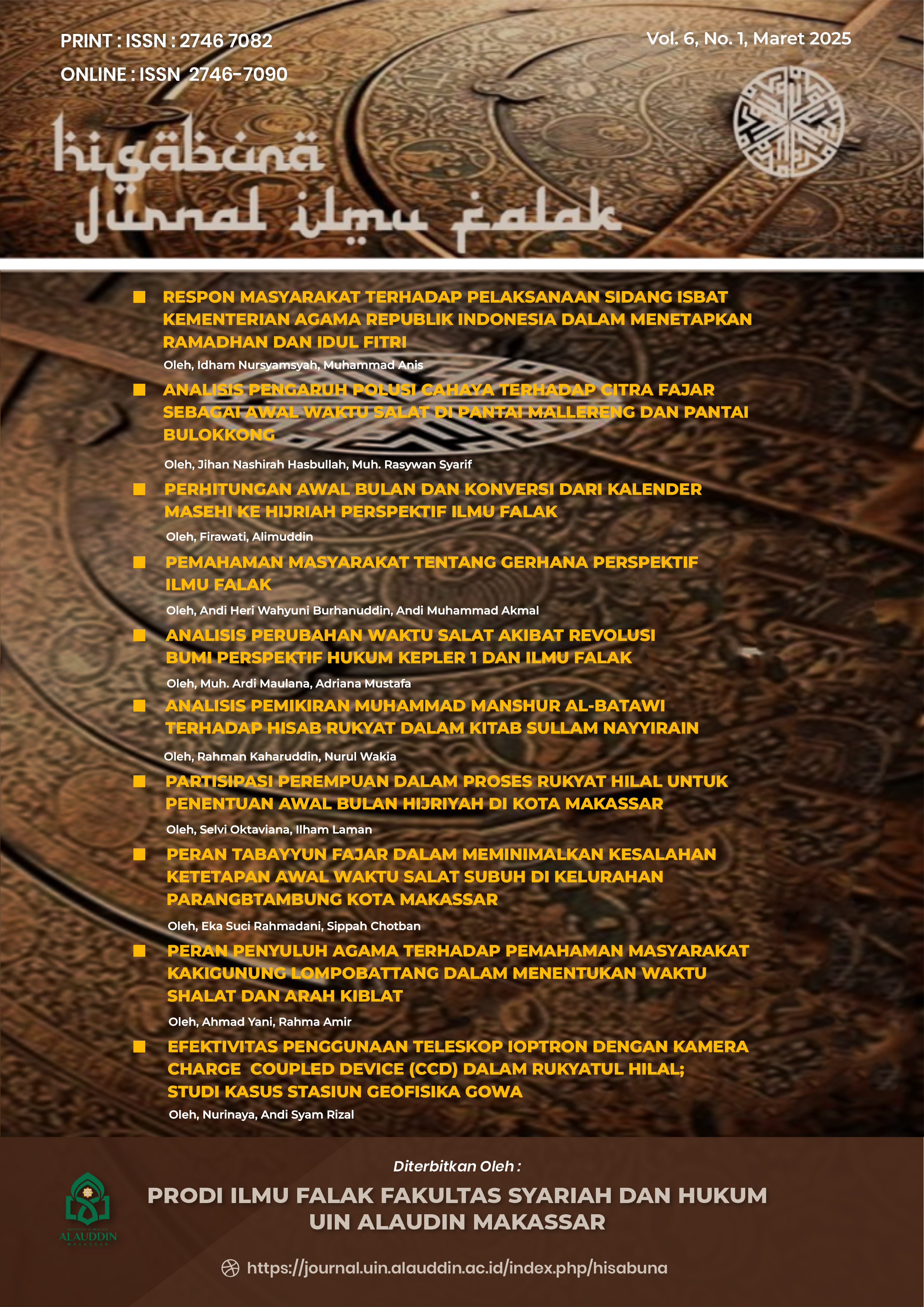PERAN PENYULUH AGAMA TERHADAP PEMAHAMAN MASYARAKAT KAKI GUNUNG LOMPOBATTANG DALAM MENENTUKAN WAKTU SHALAT DAN ARAH KIBLAT
Abstract
The main issue in this study is the role of religious counselors in shaping the understanding of the community living at the foot of Mount Lompobattang in determining prayer times and the direction of the Qibla. This main issue is then elaborated into sub-questions, namely: How do religious counselors play a role in helping the community at the foot of Mount Lompobattang, Cikoro Sub-district, Gowa Regency, to understand how to determine prayer times and the direction of the Qibla? How does the community at the foot of Mount Lompobattang, Cikoro Sub-district, Gowa Regency, understand the determination of prayer times and the direction of the Qibla?. This study aims to understand the role of religious counselors in providing the community with knowledge about how to determine prayer times and the direction of the Qibla, and to examine how the community in Cikoro Subdistrict comprehends prayer times and the Qibla direction. The approach used in this research combines a normative theological (shar’i) and formal juridical approach, employing field research as the research type. Data collection methods include interviews, observation, and documentation. The data sources in this study are religious counselors and community members in Cikoro Subdistrict, Tompobulu District, Gowa Regency. The data processing techniques used in this research are data collection, data analysis, and data interpretation. The results of the study indicate that some people rely solely on applications or printed schedules without understanding the underlying principles, making them unable to verify independently. Moreover, there is a lack of regular programs or adequate learning media to convey falakiyah (astronomical) knowledge to the general public. This is due to the fact that religious counselors may not have fully maximized their educational role in conveying information about prayer times and qibla direction to the community. The implications of this research are the role and duties of religious counselors in providing understanding regarding the determination of prayer times and the direction of the Qibla are expected to enhance outreach and education for communities that still lack knowledge in these areas also through this written work, it is hoped that the public will gain a better understanding of and pay more attention to the correct procedures for performing prayers, including facing the Qibla properly and observing the correct prayer times.
Copyright (c) 2025 Ahmad Yani, Rahma Amir

This work is licensed under a Creative Commons Attribution-NonCommercial 4.0 International License.


